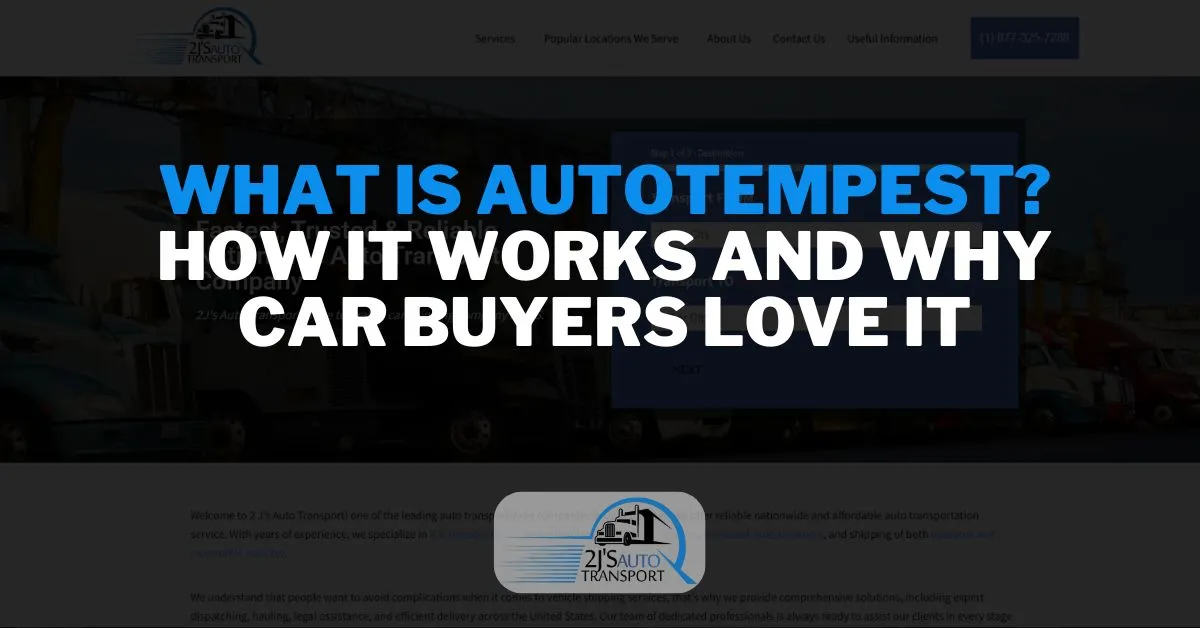
Auto Transport Scams: Red Flags You Can’t Ignore
When shipping your vehicle, whether it’s for a move, sale, or vacation, the last thing you don’t want is to fall victim to an auto transport scam. In Spite of improved customer awareness and the availability of information to protect consumers, fraud still exists. Each year, consumers pay billions of dollars for commercial fraud, most of which were avoidable had they considered the most commonly used fraudulent practices. Here are the red flags that could signal you’re dealing with a scam.
The Red Flags That You’re Dealing With A Scam
Unrealistically Low Quotes:
The first thing scammers do is offer you a quote that seems extreme low budget. Be wary of auto transport companies that provide prices significantly lower than their competitors. While it’s possible to find a deal, a price far below the average can indicate hidden fees or a scam. Legitimate companies offer transparent pricing and will often give you a breakdown of costs.
No business address, license and identity:
One of the most common red flags of car shipping fraud is the lack of an established identity. For example scammers do not have a proper business address and website on search engines. An online search for the business name should identify the business on various listing and review sites. A good website filled with helpful content, FAQ’S, videos and contact info, is a good indication that you are dealing with an established business.
Unable to reach customer service:
Any reputable auto transport company will be immediately accessible to its clients. If you dial the company phone and your call is rejected, if the person on the other end of the line fails to answer your questions about how the auto transport process works, you should avoid this company.
No Online Reviews or Negative Reviews:
Always research a company’s reputation. Check for online reviews, testimonials, and complaints. A lack of reviews or an overwhelming number of negative reviews could be a red flag.
Payment upfront prior to providing the service:
Beware of car moving companies that require a significant amount as a depository for their service. You may also want to avoid companies that require payments that make the recipient hard to trace.
Car transport company fails to provide detailed agreement:
Another way to spot a red flag of car transport fraud is the company’s refusal or failure to provide a quote or detailed agreement.
Why Auto Transport Scams Are on the Rise

Introduction:
As in the case for many industries, car shipping scams are on the rise, with fraudsters seeking customers out of their hard earned cash. Information is key and careful research of your car transport options can help you to avoid falling victim to a scam. The rise in scams can be attributed to several factors, from the growth of online platforms to the increasing complexity of the industry. Here’s why auto transport scams are on the rise:
Increased Demand for Auto Transport Services:
With more people moving across states, selling cars online, or purchasing vehicles out of state, the demand for auto transport services increased every year. But scammers are also increasing day by day, they offer attractive prices to lure customers in.
Lack of Consumer Awareness:
Information and knowledge about auto transport service is very important. Consumers often don’t know what questions to ask or what signs to look for in a reputable transport company. This lack of awareness makes it easier for scammers to use high-pressure tactics, manipulate prices, or provide false information.
Online Presence of Scammers:
The online scam is very easy to trap anyone. Fraudulent companies can create established websites, fake reviews, and ads to attract potential and wide customers.
Promises of Unrealistically Low Prices:
One of the main strategies scammers use is offering prices that are far below the industry standard. They know that customers are looking for good deals, so they advertise rates that seem too good to be true.
Lack of Accountability:
Some scam companies avoid communication once they have received a deposit or commitment. They do not provide a clear tracking system or accountability, it becomes difficult for the customer to find out where their vehicle is or to get a refund if something goes wrong.
Fake Reviews and Testimonials:
The rise of online reviews, scammers have gotten crafty by posting fake reviews on their websites or third-party platforms. People will trap just because of these fake reviews and feedback about their services.
Technological Advancements for Scammers:
Scammers use professional-looking websites, high-quality branding, and high traffic websites. Some even utilize social media platforms, email campaigns, and other digital marketing tactics to cast a wide network of customers.
Understanding the Different Types of Auto Transport Scams
When it comes to auto transport a vehicle, there are various types of scams that can target unsuspecting consumers. Scammers use different methods to trap the audience in a wide range, from offering deals that seem too ideal to disappearing after receiving your deposit. Understanding these scams is essential to protect yourself and ensure your vehicle reaches its destination safely.
Here’s a breakdown of the most common types of auto transport scams:
Phishing scam:
Phishing is first and foremost a cybercrime. In a phishing scam, a target is contacted by email, telephone or text message by someone posing as a close personal contact or on behalf of a legitimate institution.
Bait and switch:
A bait and switch scam happens when the fraudster gives you a suspiciously low quote for car transport. Everything seems fine until they pick up your car and they suddenly inflate the costs. They might try to tack on additional fees like transport cost. They essentially hold your car for ransom until you pay their made up fees.
Insufficient insurance:
An insufficient insurance scam in auto transport is a fraudulent scheme in which a car shipping company claims to have insurance coverage for the transport of a vehicle.
Double broker scam:
Some fraudsters act as car shipping brokers who charge a fee for connecting you with a car carrier to do the actual transport. Once they receive the broker fee, they will either disappear or hand you off to yet another broker who will ask for another fee.
Unrealistic shipping prices:
Some scammers offer customers with unrealistically low shipping prices, only to provide subpar services or disappear altogether.
Damage denial:
Dishonest transporters may damage a vehicle during transit but deny responsibility. They may insist that the damage was refused to acknowledge any damage at all. To avoid damage denial, thoroughly inspect your vehicle before and after transport, documenting any existing damage with any photos and written records.
How to Spot Auto Transport Scams Before It’s Too Late
With the rise of online car transport, the demand for auto transport services has skyrocketed, and with it the number of fraudulent movers. Statistics show that nearly 20% of customers report some kind of scam during the transport process. So, it’s high time we shed some light on the dark corners of this industry. Here’s how you can protect yourself by recognizing scams before it’s too late.

Don’t be lured in cheap quotes: If a company offers you a significantly lower quote than others, it might be tempting to take the deal. Companies offering ultra low rates may lack the necessary experience or resources to move your car safely. They could be setting you up for hidden fees at pickup or delivery or even a shocking price hike once your car is already on route.
Check the company’s history: When you are looking for a trusted luxury car transport, don’t just take a company’s word for it. Do your research! Check online reviews and ask past customers about their experiences
Understand the industry standards: The standards of the auto transport industry is another excellent way to protect yourself from scams. They also tend to use open or enclosed car transport trucks, depending on the customer’s preference and the type of vehicle being shipped. By knowing what to expect, you will be better equipped to spot any red flags.
Ask about compensation: Ask your chosen auto transport company about their insurance coverage. How much will they reimburse you if your car is damaged? What’s the claim process like? An established company will not hesitate to answer these questions.
Check the company’s contact details and websites: Company’s website should be professional, informative and secure. It should also contain valid contact information. The only way to contact a company is through a form on their website, this could be a red flag.
Check payment options: Look at the company’s payment policies. Most auto transport companies will require a deposit, but it should not be more than 25% of the total cost. Be wary of transport companies that demand full payment upfront. If they accept credit cards, which offer protection against fraud.
Read the agreement: Read and understand the shipping agreement. If there’s anything you are unsure about, don’t be shy to ask for clarification. The agreement should detail the terms of the transport, including pickup and delivery dates, insurance and payment terms.
What to Do if You’ve Been Scammed

Finding out that you’ve been scammed by an auto transport company can be incredibly frustrating and stressful. If you paid someone you think is a scammer or gave them your personal information or access to your computer or phone.
Document Everything:
Gather every email, text message, and phone record related to the transaction. This includes the original quote, contract, emails, and any conversations with the company. If your vehicle was damaged or delivered late, take detailed photos of the damage or condition of the car, including the transport truck and any paperwork.
Contact the Company Immediately:
Call the company and report the issue, whether it’s a delay, damage, or failure to deliver the vehicle. Request a refund or immediate action if the vehicle wasn’t delivered as promised or was damaged during transport.
Report the Scam to the Authorities:
If the scam involved theft or fraud (e.g., the company took your vehicle and didn’t deliver it), file a report with your local police department. They may be able to help recover your vehicle or investigate the company.
Check Your Auto Insurance for Coverage:
Review your auto insurance policy to see if any damage during transport is covered. If your car was damaged during transport, contact your insurance provider to determine if they will cover the repairs.
Alert Others and Leave Reviews:
Warn others by leaving reviews on third-party platforms like Google Reviews, Yelp, and Trustpilot. Be as detailed and factual as possible.Share your experience on social media or online forums where people discuss auto transport to alert others.
Consider Legal Action:
If the scam involves significant financial loss, consult a lawyer to see if you have grounds to file a lawsuit. Take further legal action against the fraudulent company.
How to Protect Yourself from Auto Transport Scams: A Quick Checklist
Auto transport scams are a growing concern, but with some caution and preparation, you can protect yourself and your vehicle. Here’s a quick, easy-to-follow checklist to ensure you’re making a safe and informed decision.
Check licenses and registration:
All vehicle transporters are required to be registered with the federal motors carrier safety administration. They should also have a motor carrier number and a USDOT number. You can verify these credentials through the FMCSA database.
Up sell auto transport scam:
In the up sell scam, fraudsters initially agree to a reasonable shipping rate. Once the vehicle is in their possession, they claim that additional services like superior protection or additional insurance are required for safe shipping.
Check their reviews:
One of the best ways to avoid transport scams is to check if the company is registered and has reviews on yelp, better business bureau and google.
Check their websites:
Check their website. Scam companies that operate websites often put them up in a hurry, and they don’t shell out a lot of money it happen
Avoiding wire transfer and cash payment:
Wire transfer and cash purchases are often used but hide more profound problems. When tracking is complex, the possibility of lost funds arises.
Research company background:
Take the time to research the company’s history, including how long they have been in business and their track records.
FAQs About Auto Transport Scams
How Do I Know If a Car Transport Company is Legit?
You can check if the car transport company is legit or not by verifying company registration, checking online reviews, checking the social media presence of the respective company and also tracking service availability.
What Should I Watch for When Shipping a Car?
Before shipping a car you can check reviews on their websites, licenses and insurance, availability of tracking services, transparent pricing and customer services.
Is It Safe to Pay for Car Transport Upfront?
It is totally ok to pay the amount in advance if and only if you are paying it to a trusted car transport company.
What Are the Warning Signs of a Car Shipping Scam?
These are the warning signs of car shipping. You can check Bad reviews, bait and switch, aggressive marketing, deceptive texts, phishing, suspiciously cheap quotes, pickup and delivery.
How Do I Recover If I’ve Been Scammed?
If you have been scammed you can report the scam as fast as possible. Freeze your credit, check your insurance coverage and be aware of recovery scams.
How do I know if an auto transport company is legit?
If an auto transport company is legit or not. You can check documentation, read reviews and consider the company’s responsiveness and how clear they are in their communication.
How to not get scammed shipping a car?
To avoid getting scammed when shipping a car you can check the company’s:
Licensing, read online reviews, verify the company’s address, choose a full service company and build a trusted network. And also avoid wire transfer and cash payment.
Summary:
Choosing the right auto transport company is essential for ensuring that your vehicle is safely and securely delivered. With so many companies out there, it can be difficult to know which ones are legitimate and which are scams. But still you can protect yourself from falling down the scams of auto transport company. Check the companies official registration to verify if the company is registered with appropriate transportation authorities or has the necessary licenses. Avoid large upfront payments and be cautions of companies that demand upfront payment. Legitimate car shipping companies usually require a small deposit or payment upon delivery. Use secure payment methods such as credit cards or payment platforms that offer fraud protection. By following the above precautions and aware of the red flags, you can ensure that your car transportation occur safely and scam free.

John Furbush
Author & Owner of 2 J's Auto Transport
- Phone:+1 877-325-7288
- Email:jfurbush@2jsautotransport.com
2J's Auto Transport Car Shipping Service
Are you Looking for a fast, trusted, insured, affordable and reliable Car shipping company? Don’t worry! just Contact 2J’s Auto Transport for a free quote and let us take the stress out of your auto transport experience!




